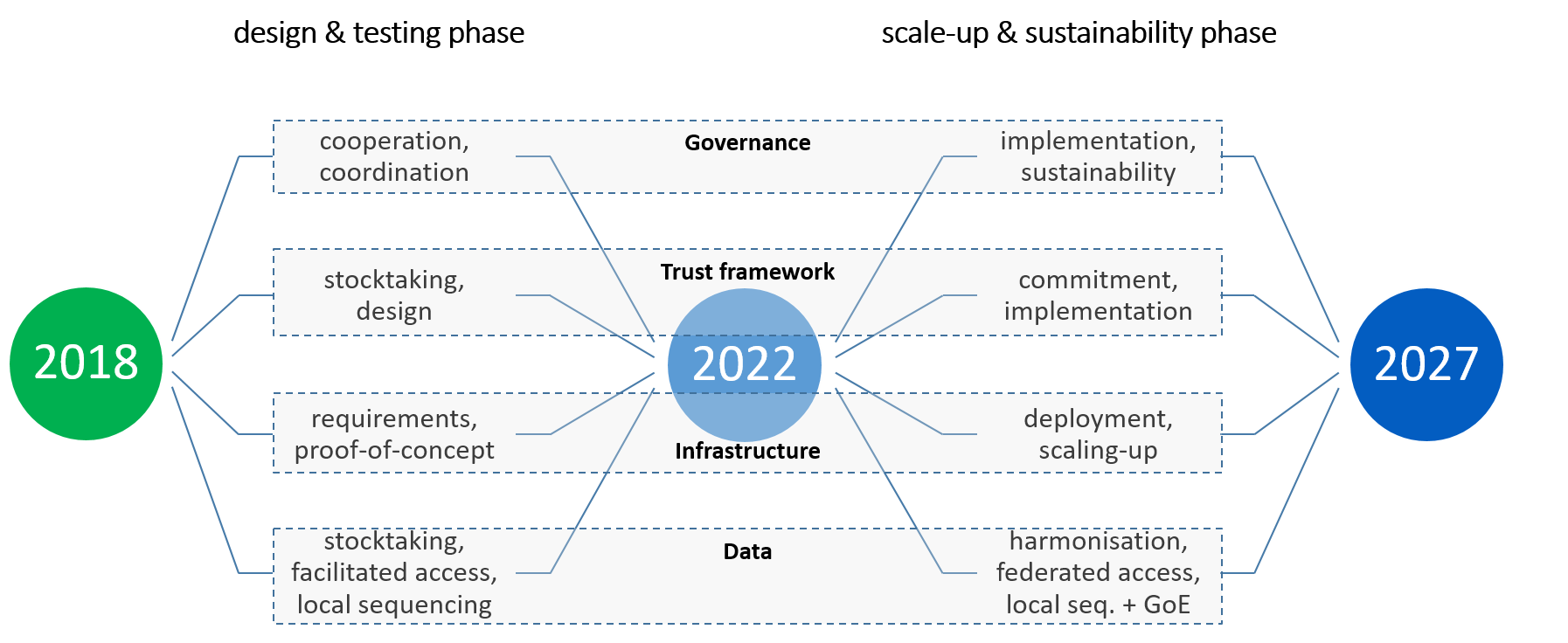To enable social services stakeholders to provide support to Singaporeans during the COVID-19 pandemic, The Ministry of Social and Family Development has resorted to using data analysis tools, electronic portals and joint platforms between government agencies to design its services, allocate support to the most needy citizens, and save the time and effort of specialists.
When social distancing measures are in place, The internet provided a virtual medium that enabled people to communicate from anywhere. This idea is fully reflected in what some governments have done to communicate with their citizens and leverage data in the design and delivery of government services.
In Singapore, Many citizens rely largely on the Ministry of Social and Family Development, which provides various services within a sector that includes more than 15,000 social and psychological workers, therapists, teachers, experts in special education, and others. The work of this sector is usually based on direct interaction with citizens. But with the COVID-19 pandemic, and the accompanying government measures that limited opportunities for social rapprochement, Government staff had difficulty providing social services in person or without a prescription. This challenged the entire system to devise alternative means of providing aid to its citizens.
For this reason, The Government Technology Authority has worked with the Ministry of Social and Family Development in Singapore to leverage data in the design of support and relief operations for citizens in need within the social services sector digital plan, which aims to provide a targeted and structured approach to support social services agencies in digitizing their work mechanisms.
This digital interaction between the government and citizens is based on a new comprehensive portal that allows its users to access pandemic-related support programs and request access to social services. Work on this project has begun by gaining a better perception of the visions related to the provision of social support, The Ministry used data available to government agencies to identify citizens who had previously received assistance and verify that they needed additional support to refer them to the relevant authorities. A platform that allows fast online applications has also been launched. Additional features were gradually introduced.
The Ministry also supervised the sharing of data to coordinate the various forms of support provided by government agencies, Social service workers working on the ground, for example, can view the data of a particular family collected by another government agency. In special cases, The Ministry has provided the service of virtual meetings between citizens and service providers via the Internet, To provide additional assistance such as sending a medical worker or dropping payments owed by citizens to the Housing and Development Council, And even see the details of health care financing.
Besides, The ministry used different techniques to make the process easier and more accurate, It used ready-made tools available on the government's cloud, such as data analytics tools that help collect and analyze various data such as site usage rates, most visited pages, or user comments.
While the Ministry adopts the technical approach to provide its services, This approach is not without challenges, The most important of which is the knowledge and readiness of its crews to use data and modern technology. To meet this challenge, The ministry has chosen two ways to develop the technological skills of its employees. The first method was to train government employees to handle data through the Government Technology Authority program, which obliges workers to acquire new skills every few years. The second method is to organize training courses by the Ministry itself to enable employees to design policies based on relevant data. Such as graphic photography training, 200 employees received to learn how to turn statistics into clear, easy-to-understand images.
Like any project involving the sharing of citizen data, The ministry's efforts have raised questions and concerns related to security and privacy, The team confirms that access to citizens' personal information is limited to the government and the councils and bodies approved by it and participation in this project, For the purposes of providing services within the jurisdiction and powers of the Authority only, For example, consulting providers cannot see income data that is not related to their mission. Moreover, The Ministry guarantees citizens that their data remains protected unless they themselves give consent to share it with the concerned authorities, Or in cases of emergency included in the provisions of the Law on the Governance and Protection of Personal Data and the Government Instruction Manual in this field.
In the end, The shared database has greatly facilitated citizens' access to services, Through it, they were able to apply to various social support programs offered by several bodies without having to repeat data entry processes that take a lot of citizens' time, such as explaining the case or filling out forms. The data they share will enable specialists to assess needs, understand circumstances and set priorities accurately. Help will be more comprehensive, convenient and consistent.
The analysis tools available for this project help improve the government's digital services. Information sharing tools save staff time and effort. This is similar to virtual meetings, which save citizens commuting time, reduce direct contact and ensure that services continue to be provided at the same time.
References:
- https://govinsider.asia/digital-gov/how-data-helps-provide-singapores-relief-aid-msf-caroline-tan/
- https://www.msf.gov.sg/policies/Social-Service-in-Singapore/Pages/Data-Management-and-Sharing.aspx
- https://www.msf.gov.sg/media-room/Pages/Industry-Digital-Plan-by-MSF-and-NCSS-to-Support-Social-Service-Agencies.aspx






